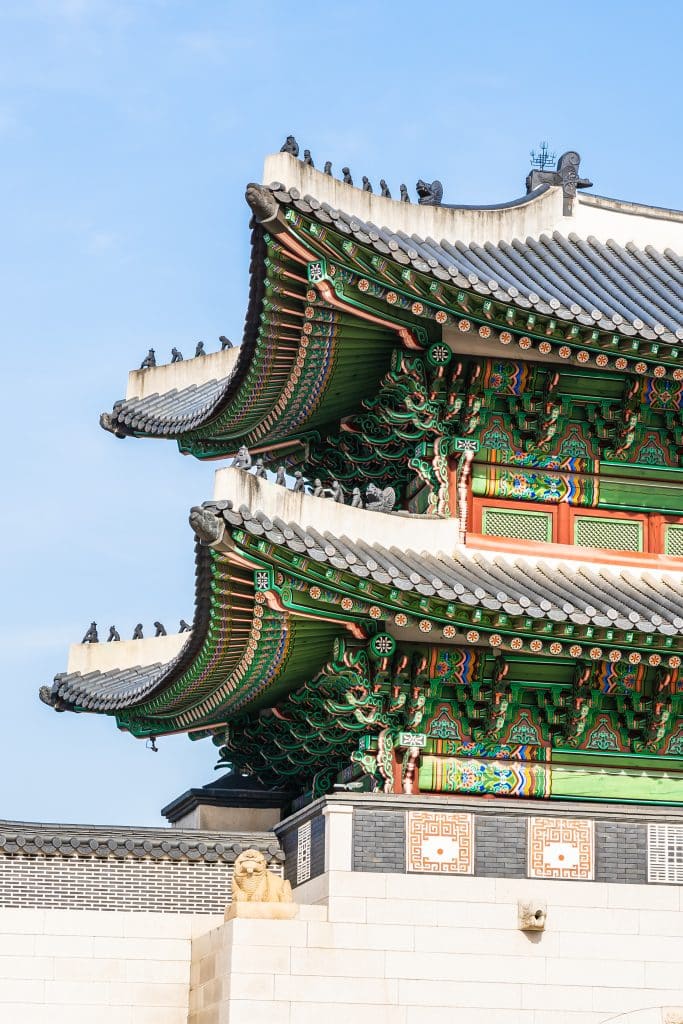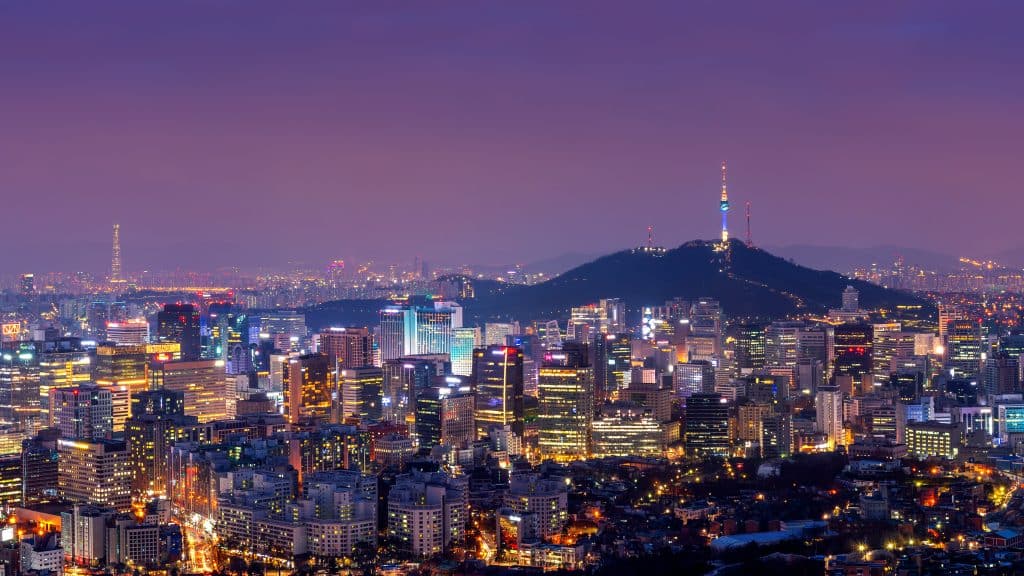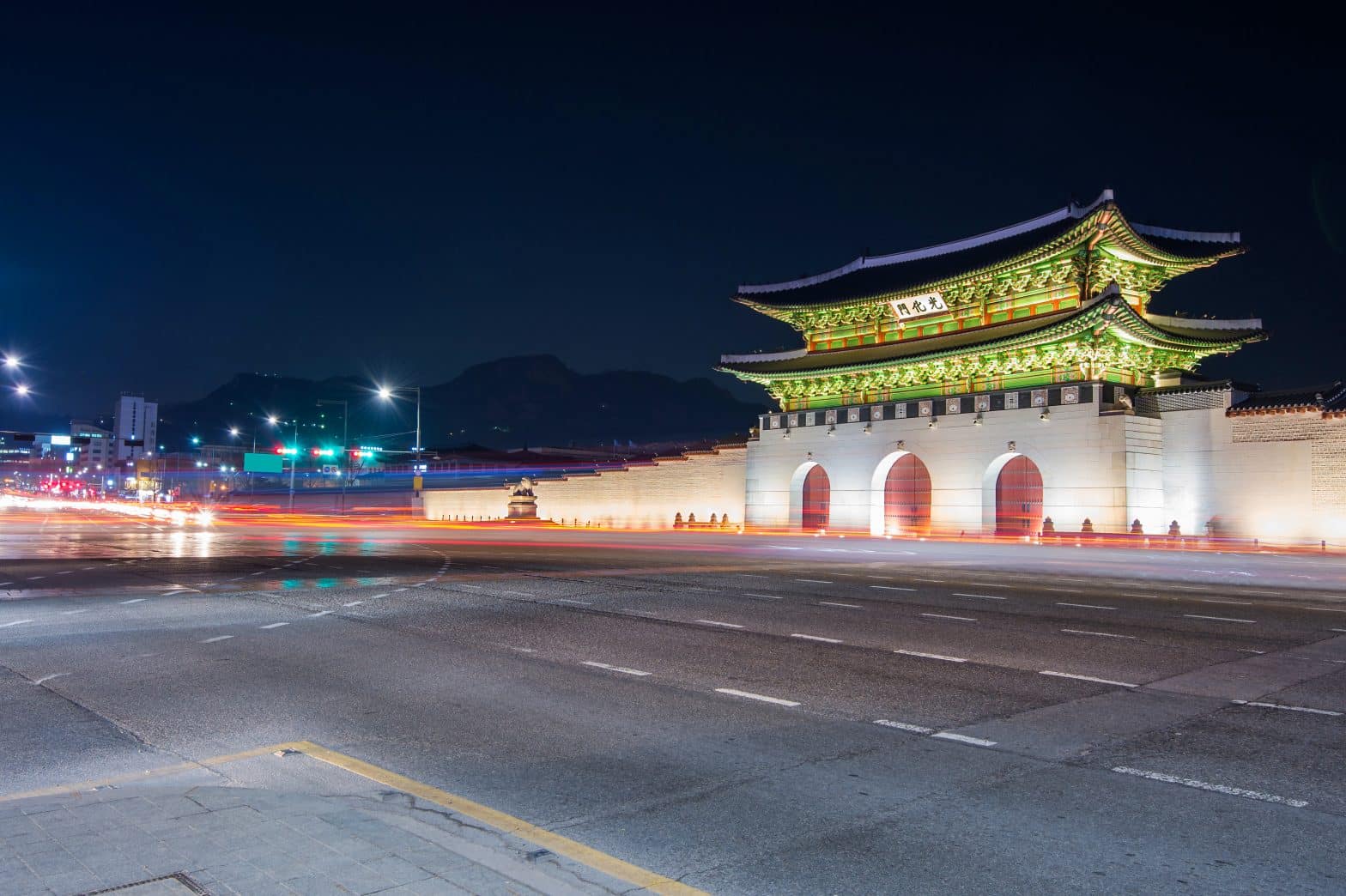There are two types of expats you will often find in Seoul: those who are passionate about Korean culture, who listen to Blackpink or BTS and devour series such as Squid Game and Pachinko, and those who fell in love with the city after a business or personal trip.
If this sounds like you, you are probably thinking about moving to Korea, be it alone or with your family. To help you make a success of your expat experience, here’s everything you need to know about life in Seoul: long-term visas, housing, cost of living, healthcare, employment and much more.
Living in Seoul: pros and cons
Pros
- The streets of Seoul are very clean
- The crime rate is one of the lowest in Asia!
- The public transport network is very modern and comprehensive
- Seoul is surrounded by several mountains, offering beautiful scenery and the opportunity to go hiking at the weekend
- Schools provide education that is renowned for its quality
- The city is connected: there is Wi-Fi everywhere (even in the metro, and it works well!)
- Koreans are generally very welcoming towards foreigners
Cons
- Finding accommodation can sometimes be difficult in certain crowded areas of Seoul
- Air quality is often below WHO recommendations
- Although the city remains cosmopolitan and English is widely spoken, mastering Korean quickly becomes essential for full integration
Administrative procedures for living in Seoul
Obtain a visa
AFirst and foremost, you will need a long-stay visa to stay in Seoul for more than 90 days. South Korea offers several types of visas:
- Work (E-series)
- Student (D-2)
- Marriage (F-6)
- Permanent resident (F-5), for people who have been living in Korea for several years.
To apply, you must go to the nearest Korean embassy or consulate.
You can also find out about all the visas available on the official Korean government website.
Here is the website, only available in English or Korean.
Apply for an Alien Card
This unusual name refers to the resident card, which is required for many important procedures, such as opening a bank account, signing an employment contract, etc.
You can apply for it at HiKorea.
From experience, we recommend that you apply for your Alien Card as soon as you arrive in the country. The waiting list for an appointment can sometimes be long, so it’s best to start the process as soon as possible!
Finding accommodation in Seoul
Before you leave to live in Korea, you should know that finding accommodation in Seoul can sometimes be an uphill battle.
In some neighbourhoods, supply struggles to keep up with demand. But the good news is that landlords often prefer tenants who want to settle down for the long term, rather than tourists or seasonal workers.
In Seoul, most of the available accommodation is studios or small flats. To find more spacious accommodation or houses, you generally need to move away from the city centre and look in the suburbs.
If you are on your own, you can also opt for share houses (shared flats). This is a practical option if you are working and need to find accommodation quickly, close to your place of work.
Choosing your neighbourhood
Expatriates in Seoul tend to favour neighbourhoods such as Haebangchon, not far from Itaewon, or Yeouido, which is popular for its quieter atmosphere. You can also look around Sinchon or Jongno.
The Seorae Maeul neighbourhood is considered to be ‘Little France’ and has a large French community!
If you are looking for a more dynamic and lively environment, you can head to legendary neighbourhoods such as Itaewon, Gangnam or Hongdae. But of course, rents are often higher there.
How much does it cost?
In Seoul, a one-bedroom apartment in the city centre costs between €600 and €1,250 per month, depending on the neighbourhood.
Further away from the busiest areas, the budget drops to between €300 and €750.
For more spacious accommodation, such as a three-bedroom flat, you can expect to pay between €1,350 and €3,100 on average in the city centre, and between €600 and €1,500 in the suburbs.

Don’t be afraid of key money!
The key money (‘jonsei’ in Korean) required in Seoul can be quite high and may surprise many people. However, this is common practice, as the higher the deposit, the lower the monthly rent is generally, or at least in line with market prices.
That said, don’t hesitate to negotiate the amount of the rent. Some landlords can be a little greedy with expats, and a little negotiation can save you money.
And if you want to save yourself the hassle of finding accommodation, you can go through a real estate agency. But of course, there will be fees to pay.
The cost of living in Seoul
A single person should budget €1,550 per month to live in Seoul. This average includes all major expenses (rent, groceries, healthcare, transport, leisure activities, etc.).
A family of four should budget €5,000 per month.
Rent is obviously the biggest expense, followed by groceries.
If you would like to find out more, check out our comprehensive guide to the cost of living in South Korea.
How much do you need to earn to live comfortably in Seoul?
The average salary in South Korea is around €2,200 net per month, rising to an average of €3,000 net in Seoul, particularly in the private sector.
In the public sector, the city of Seoul has set the minimum wage at 2,461,811 won per month (€1,528), effective since 1 January 2025.
These average salaries allow you to live comfortably, although this depends on your lifestyle and spending habits.
As a general rule, expatriates earn higher salaries due to the positions of responsibility they hold, often in large companies.
Getting around the Korean capital
Seoul has no fewer than 768 metro stations and 23 lines (the third largest network in the world), as well as more than 7,380 buses with over 400 bus routes. Not to mention that taxis are plentiful and there is an extensive road network for drivers.
Getting around is therefore very easy, especially when you are well prepared!
To plan your journeys on public transport, we recommend downloading the Subway Korea app and purchasing a rechargeable T-Money Card (sold for an average of 8,000 won, or €5) to pay for your journeys easily.

You can also choose the Climate Card, which gives you unlimited access to the city’s public transport for one month for around 72,000 won (€45). However, please note that it is not valid on certain lines.
Moving to Seoul with your family
At first glance, Seoul gives the impression of an ultra-modern and dynamic city, where it is difficult to imagine family life. And yet, if there is one capital city in Asia where it is good to live with children, it is Seoul!
Schooling for your children
The quality of education in Korea is widely recognised. Among the most reputable schools are the following:
- Korea International School
- Dulwich College Seoul
- Seoul Foreign British School
- Lycée Français de Séoul
The Korean education system emphasises performance, and private tutoring after school is quite common.
The baccalaureate, called ‘suneung’ in Korean, is a very important milestone in the country, seen as a turning point in students’ lives in terms of gaining access to the best universities.
When choosing a school for your children, we recommend that you base your decision on two criteria:
- Its proximity to your home
- The type of education offered by the school, bilingual or trilingual.
Family life
There are dozens and dozens of parks and green spaces in Seoul. They are popular with families for relaxing after a long day or for picnics.
You will also find many activities to do as a family, such as amusement parks (Lotte World, Everland, etc.), the zoo, and museums (National Museum, Leeum, Palace Museum of Korea, etc.).
Not to mention the many neighbourhoods to discover in this huge city.
Working in Seoul
If you have a work visa, you can work without any worries. The job market is extremely dynamic, with a low unemployment rate of 2.6% in June 2025.
The typical working week is 40 hours spread over 5 days, and punctuality and respect for superiors are two very important concepts in Korea.
Some sectors recruit more than others, particularly industry, IT, education and services. Of course, certain profiles are preferred by recruiters, particularly those with at least a bachelor’s degree and those who are fluent in Korean or English (or both).
Getting medical care in Seoul
The healthcare system in Korea is considered one of the best in the world. It is based on high-quality care, modern infrastructure and universal national health insurance. This is compulsory for residents staying in the country for more than six months.
Among the best healthcare facilities in Seoul are:
- Asan Medical Centre
- Samsung Medical Centre
- Seoul National University Hospital
However, this quality comes at a price: healthcare can be expensive, and you will often have to pay some of the costs yourself.
Waiting times can also be long for certain treatments. This is why many expatriates choose to take out private health insurance to supplement the public system.
Choosing tailor-made insurance for expatriates
As an expatriate, you can opt for private international health insurance that is specially tailored to your lifestyle.
At Foyer Global Health, specialists in health insurance for expatriates, we offer insurance designed for you. It includes:
- Coverage valid in Korea, in your country of origin and anywhere in the world
- Rapid access to care at the facility of your choice, including French-speaking or English-speaking practitioners
- Repatriation in case of emergency
- 24/7 medical assistance
- Wellness services, such as the ‘Get Fit’ fitness programme and a mental health coach to support you in your personal challenges
